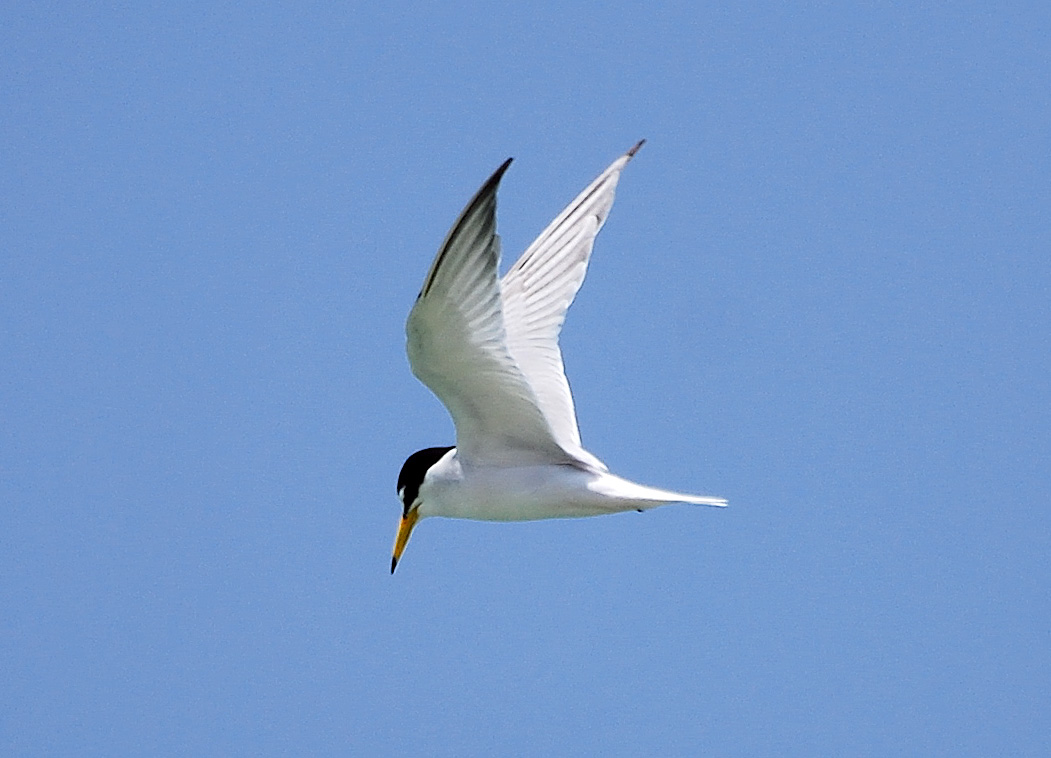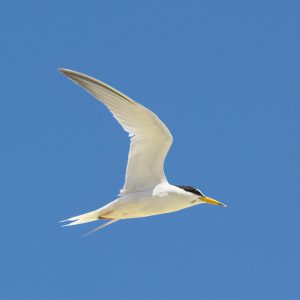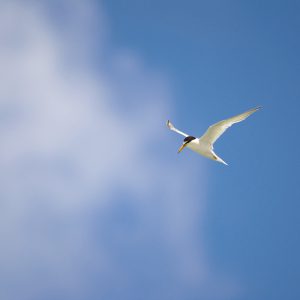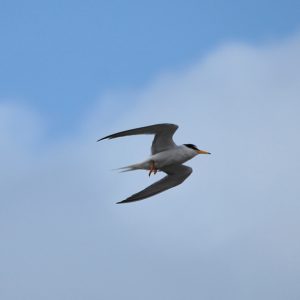むなかたが集まる
電子データベース
電子データベース
コアジサシ

| 種目 | コアジサシ (小鰺刺) | 分類 |
チドリ目 カモメ科 アジサシ属 |
学名 | Sterma albufrons | 英名 | Little Tern |
|---|---|---|---|---|---|---|---|
|
コアジサシ (小鰺刺) |
チドリ目 カモメ科 アジサシ属 |
Sterma albufrons | Little Tern |
宗像市でみられる場所・時期
宗像では夏鳥で,4月~10月に,神湊から鐘崎にかけての海岸や,海域で見ることができる。
特徴
全長22㎝から28㎝の小降りの鰺刺である。雌雄同色である。
夏羽は,額は白く,頭上から後頸,過眼線が黒い。背から翼正面は灰色である。初列風切外縁は黒く,内弁は灰色,腰から尾は白く,燕尾である。顋以下の体下面は白い。嘴は細くて黄色である。足は橙黄色。頭頂部ややや扁平である。
冬羽への以降は8月頃から始まり,頭上は白く,嘴は黒くなる。足も黒褐色となる。
幼鳥は,額が白く,頭上から後頸,過眼線は黒く,過眼線は嘴の基部にはつながらない。
習性
海岸,内湾,港,河口,河川,湖沼,池などに飛来する。
群れで行動し,海岸,埋立地,河原などの砂地や砂礫地にコロニーを作って繁殖する。ゆっくり見える羽ばたきだが,早く,テイクウ飛行からダイビングして主に魚類を食べる。
雄が雌に求愛給餌を行う。雌は複数の雄から給餌を受けるが,給餌を受けたことがカップル成立には直接つながらない。
分布
ユーラシア大陸の大規模河川沿いや北米大陸のフロリダを中心とした東南部,沿海州から黄海,東シナ海沿岸,日本列島,朝鮮半島沿岸で繁殖し,アフリカ大陸南部,アラビア半島沿岸部,インドシナ半島,インドネシア,ミクロネシア,オーストラリア北部沿岸,南米大陸カリブ海沿岸で越冬する。その一部では留鳥として繁殖もしている。
その他
繁殖に適した河原の砂地や砂礫地が減少しており,減少傾向にある。
 はじめに
はじめに お問い合わせ
お問い合わせ

